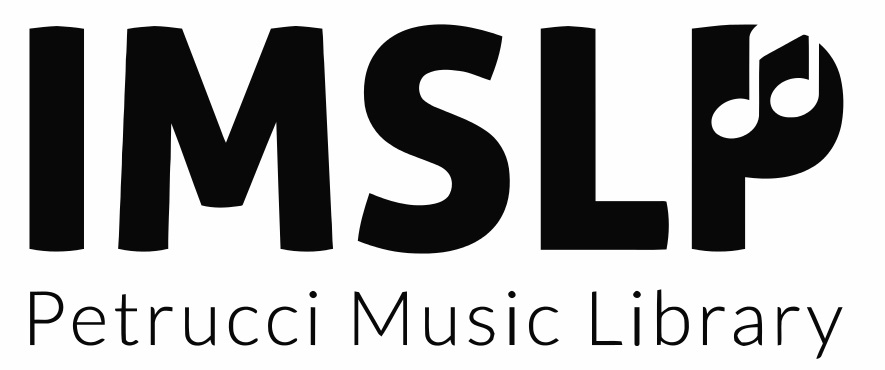Composition: Robinson Crusoé (Offenbach, Jacques)
| Title | Robinson Crusoé |
| Alternative title | Opéra comique en trois actes et cinq tableaux |
| Creators | Jacques Offenbach (composer) and Eugène Cormon (librettist) and Hector-Jonathan Crémieux (librettist) |
| Opus | |
| Instrumentation | voices, mixed chorus and orchestra |
| Number of movements | — |
| Keys | — |
| Composed | 1867 |
| First published | 1867 |
| Dedication | — |
| Tempo markings | — |
| Metronome markings | — |
| Time signatures | — |
| Average duration (sec) | — |
| Number of measures | — |
| Composition types | Operas comiques |
| Language | French |
| Period | Romantic |
| View on IMSLP |  |
| Code |
Sections
(No sections)
Arrangements
| Details | Section | Arranged for | Arranger |
|---|---|---|---|
| view | Complete | piano | Louis Soumis |
| view | Selections | violin | Jules Offenbach |
Scores
| Details | Section | Type | Publisher | Date | File |
|---|---|---|---|---|---|
| view | Complete | parts | — | — | Flute 1/2 (2nd doubles Piccolo) · view Oboe 1/2 · view Clarinet 1/2 (B, A, C - 2nd doubles Bass in B) · view Bassoon 1/2 · view Horn 1/2 (A, D, G, F, C, E, E, A) · view Horn 3/4 (E, A, C, F, A, G, D) · view Cornet 1/2 (B, A) · view Trombone 1/2 · view Trombone 3 · view Percussion · view Violas · view Cellos / Basses · view Bass Drum / Cymbals · view Tambourine / Tenor Drum · view Harp · view Violins I · view Violins II · view |
| view | Complete | vocal score | Brandus | 1867 | Complete Score (monochrome) · view |
| view | Complete | vocal score | Brandus | 1867 | Color Cover · view Part 1 · view Part 2 · view Part 3 · view Part 4 · view Part 5 · view |
| view | Complete | selections,vocal score | Brandus | 1867 | No.1, Air: "Voir c'est avoir" (Act I, No.1b), A flat major · view No.1bis, Air: "Voir c'est avoir" (Act I, No.1b), F major · view No.2, Ronde: "Debout, c'est aujourd'hui dimanche" (Act I, No.2) · view No.3, Ariette: "Tom était un danseur ingambe" (Act I, No.3), G minor · view No.3bis, Ariette: "Tom était un danseur ingambe" (Act I, No.3), F minor · view No.4bis, Romance: "S'il fallait qu'aujourd'hui" (Act I, No.4b), G major · view No.4ter, Romance: "S'il fallait qu'aujourd'hui" (Act I, No.4b), F major · view No.5, Duo: "Apprenez, mon cousin" (Act I, No.5) · view No.6, Rondo: "Mon bon ami" (Act I, No.6a) · view No.7, Grand air: "Au seul bruit de mes pas" (Act II, No.8), F major · view No.7bis, Grand air: "Au seul bruit de mes pas" (Act II, No.8), D major · view No.8, Chanson de Vendredi: "Tamayo, mon frère" (Act II, No.9), E major · view No.8bis, Chanson de Vendredi: "Tamayo, mon frère" (Act II, No.9), G major · view No.9, Duo: "Mon âme à ses regrets" (Act II, No.10) · view No.10, Chanson du pot au feu: "Je prends un vase de terre" (Act II, No.12) · view No.11, Duo: "O mon Toby, mon doux ami" (Act II, No.13) · view No.12, Grand air: "Joyeux matelots" (Act II, No.14c), A minor · view No.12bis, Grand air: "Joyeux matelots" (Act II, No.14c), G minor · view No.13, Berceuse: "Beauté qui viens des cieux" (Act III, No.16), A major · view No.13bis, Berceuse: "Beauté qui viens des cieux" (Act III, No.16), C major · view No.13ter, Berceuse: "Beauté qui viens des cieux" (Act III, No.16), A major with cello solo · view No.14, Ariette: "Oui, c'est un brun" (Act III, No.17), A flat major · view No.14bis, Ariette: "Oui, c'est un brun" (Act III, No.17), F major · view No.16, Romance: "Je veux partir" (Act III, No.19), A flat major · view No.16bis, Romance: "Je veux partir" (Act III, No.19), F major · view No.17, Couplets: "Maître avait dit à Vendredi" (Act III, No.20), F minor · view No.17bis, Couplets: "Maître avait dit à Vendredi" (Act III, No.20), A minor · view No.18bis, Duetto: "Veux tu, mon bonhomme" (Act III, No.21) · view |
| view | Complete | Arrangement for piano |
Brandus | 1868 | Complete Score · view |
| view | Complete | Arrangement for violin |
Brandus | 1868 | Première suite (Nos. 1-11) · view Deuxième suite (Nos. 12-21) · view |
Recordings/Performances
(No recordings)
©2026 David P. Anderson